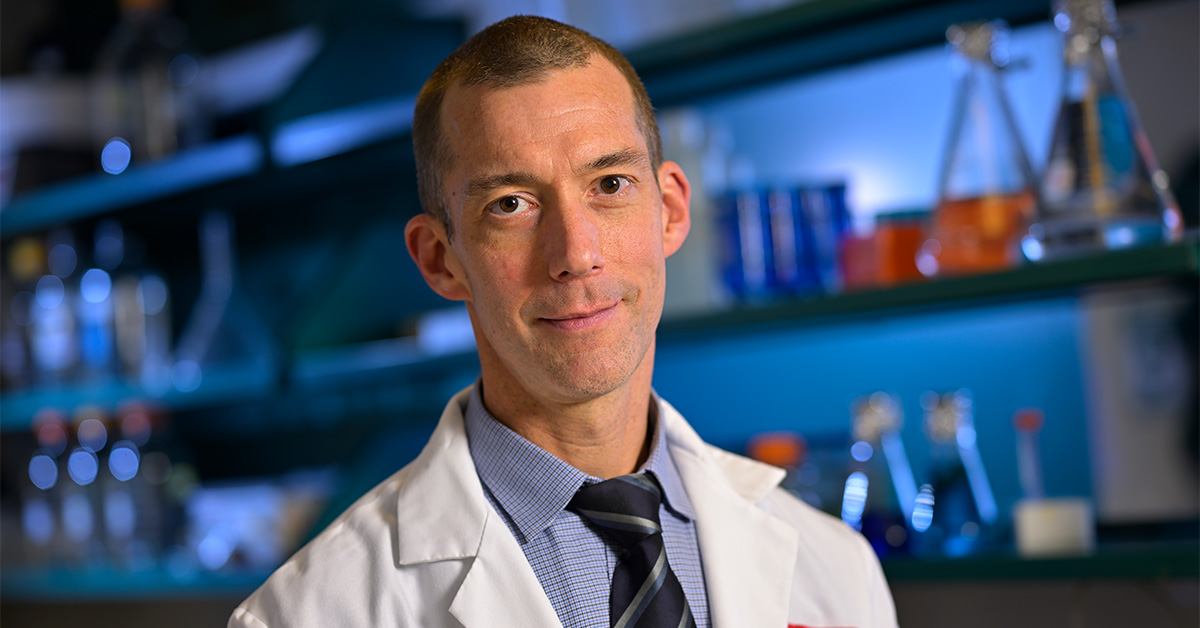
PHILADELPHIA (January 19, 2024) — Although studies have shown that aspirin can reduce the risk for colon cancer among people with Lynch syndrome, a new study presented today by researchers at Fox Chase Cancer Center found that only a minority of patients are taking it as a form of chemoprevention.
Michael J. Hall, MD, MS, the Chair of the Department of Clinical Genetics and Director of the Gastrointestinal Risk Assessment Program at Fox Chase, and colleagues unveiled results of the PREVENTLynch study at the 2024 ASCO Gastrointestinal Cancers Symposium. Sachi Singhal, MD, a postdoctoral fellow in Hematology/Oncology at Fox Chase, presented the information in a poster.
“People with Lynch syndrome are at increased risk for colon cancer over their entire life span, and even though we know that increasing the colonoscopy screening interval can help lower the risk of developing cancer, it doesn’t prevent cancer altogether,” Hall said. “For these folks that we know have such high risk, additional adjunctive therapies are attractive.”
There are longstanding data that aspirin has preventive benefits in people at average risk for colon cancer. For people with Lynch syndrome, the most common form of hereditary colorectal cancer, the previously published CAPP2 trial showed that if taken for at least two years, aspirin reduced the risk for colon cancer by about 40% and that risk reduction persisted for more than 10 years. But despite such data, rates of aspirin use for cancer prevention have remained low.
“People in general are not as interested in preventive approaches to medicine,” Hall said. “We had noted anecdotally that patients did not seem to be using aspirin as a chemopreventive.”
In their PREVENTLynch study, Hall and colleagues surveyed 296 people in the Fox Chase risk registry, as well as nationally and internationally, to ask about their perceptions of aspirin chemoprevention.
The majority of patients had completed intensive colonoscopy surveillance, with about two-thirds completing annual screening. In contrast, only about one-quarter of respondents reported taking aspirin and about one-fourth of those were doing so for an unrelated cardiac indication.
“Even in this high-risk population, engagement in a chemoprevention choice that we know has been proven in a trial to be beneficial was not great,” Hall said.
The research team identified no significant differences among those people who did and did not take aspirin based on age, race, and underlying Lynch syndrome genetic subtype. Interestingly, aspirin was perceived to be convenient both among people taking it and those not taking it.
Concerns about the side effects of aspirin and the prevention reassurance of the protective benefits of aspirin were increased among the group of people who chose to take aspirin compared with those who did not.
Hall said these findings are important to take back to investigators developing new prevention strategies to help them understand the barriers that might limit their work.
“Part of what we work to do is identify what is most attractive to patients,” Hall said. “Even if the prevention method has a smaller benefit, if it is attractive and more people engage with it, the more effective it is. We need to not only think about exciting new interventions, but about whether or not they are approachable for patients.”
The study, “Prevalence and Predictors of Aspirin/NSAID Use Among Patients With Lynch Syndrome (LS),” was presented at the 2024 ASCO Gastrointestinal Cancers Symposium, which is being held in San Francisco January 18-20.